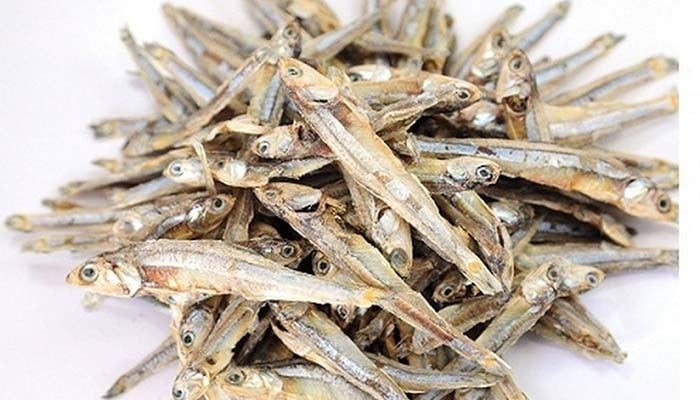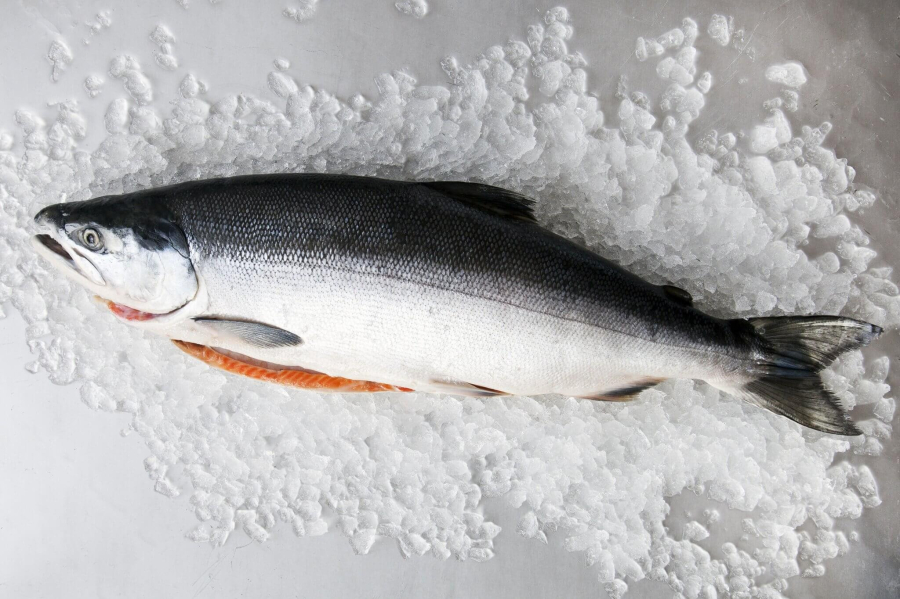Spoiled Fish
While fish is typically a nutritious and healthy food choice, it’s important to be cautious of spoiled fish, as it can be a breeding ground for bacteria and pose a high risk of foodborne illnesses. Spoiled fish often occurs when the fish is no longer fresh, and its immune system is compromised, allowing bacteria to thrive. This is especially prevalent in sea fish.

Spoiled fish often contains high levels of bacteria, which can lead to food poisoning. Illustrated photo.
As bacteria proliferate, the histamine levels in the fish’s flesh increase and accumulate. Histamine is a heat-resistant toxin, which means it can remain toxic even when the fish is cooked. This is why consuming spoiled fish is strongly discouraged, as it can pose a significant health risk.
Dried Fish
Dried fish is typically preserved with large amounts of salt, and consuming it frequently or in excessive quantities can result in a high salt intake. High levels of sodium in the body can lead to increased blood pressure, which, in turn, can cause damage to vital organs by rupturing or blocking arteries, leading to oxygen and nutrient deficiencies.

Dried fish often contains high amounts of salt, which can contribute to high blood pressure. Illustrated photo.
Puffer Fish
Puffer fish, or fugu, as it is commonly known, contains a highly dangerous toxin called tetrodotoxin. This neurotoxin is one of the strongest known poisons, and even a small amount can be fatal. It acts quickly, causing muscle paralysis, respiratory failure, and potentially death within hours of consumption.
Only professionally trained chefs should handle and prepare puffer fish, and even then, there is always some risk involved.
Farm-raised Salmon
Farm-raised salmon are often fed an artificial diet that may include chemical additives, preservatives, and growth hormones. These substances can accumulate in the fish’s flesh and potentially harm human health. Additionally, farm-raised salmon may contain high levels of contaminants such as PCBs and dioxins, which are associated with an increased risk of cancer and other health issues.

Farm-raised salmon may contain growth hormones that are harmful to human health. Illustrated photo.
Tilapia
Tilapia has a significantly higher ratio of omega-6 to omega-3 fatty acids compared to other fish. A diet high in omega-6 fatty acids can lead to inflammation and an increased risk of chronic diseases such as heart disease, diabetes, and arthritis. Furthermore, tilapia is often farmed in crowded ponds or tanks, making them susceptible to diseases and parasites.
To control these issues, tilapia may be treated with antibiotics and other chemicals, which can accumulate in their flesh and pose risks to human health. Additionally, tilapia may be exposed to contaminated water and absorb harmful chemicals and waste, further increasing the risk of consuming toxic substances.

Tilapia farmed in crowded conditions are prone to diseases and parasites. Illustrated photo.
King Mackerel
King mackerel is one of the fish with the highest mercury content. Mercury is a heavy metal that can accumulate in the human body and cause serious health issues, especially for pregnant and breastfeeding women and young children. It can affect the nervous system and brain development in fetuses and infants.
Even low-level exposure to mercury over a prolonged period can lead to health problems such as memory loss, difficulty concentrating, and issues with kidney and cardiovascular function.



































